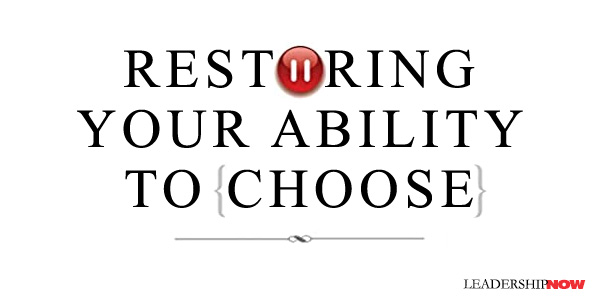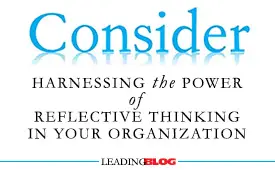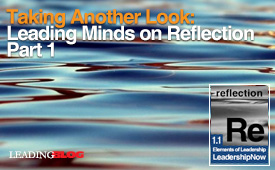Restoring Your Ability to Choose

WE all like to think we are in charge of our choices. But the fact is that most of the time we are reacting, not choosing. Most of what we label choice is habit. We’re really on automatic. It can even lead us to think that we have no choice. Only when we pause—slow-down to think and reflect—are we exercising our ability to choose.
Nance Guilmartin writes in
The Power of Pause that a pause is “any space between an action and your reaction.” And it’s vitally important:
Today you need the ability to discern what lies beneath people’s words, their reactions, or their silence. If you don’t build the neuropathways in your brain to pause, to momentarily disengage your automatic reactions, you can trigger a chain reaction that derails your best intentions and strategies.
Guilmartin lists seven cues that a pause is in your best interest. It’s time to pause if you are thinking, feeling, or saying:
- I have no choice.
- This doesn’t make sense. How could he-she-they do that (to me)?
- I have to act now or else “they” will beat me to it.
- I can’t believe this is happening again.
- We’re not on the same page.
- This isn’t what I expected.
- I know the answer, and I’m not interested in what someone else thinks.
The Power of Pause Method is based on a three-step Effectiveness Equation and twelve Power of Pause practices. The equation:
Pause (Presence of Mind) + Curiosity + Humility =
Professional Effectiveness and Personal Fulfillment
Not surprisingly, the equation references an all-important addend,
humility. Humility should fuel your curiosity and drive the need to pause. Guilmartin explains that “in situations where you think you know enough, pausing to wonder what you don’t know is a vital, even game-changing leadership skill.”
The twelve practices are:
- Drive your choices instead of being driven. Apply the Power of Pause to take back self-control and recognize you always have a choice.
- Be aware of your filters (and theirs). Remember that filters can lead to unconscious misinterpretations.
- Give the benefit of the doubt. Check your assumptions. Meaning isn’t in the words: it’s in the interpretation of them—by you and others. When in doubt, ask, “Can you help me see what you see?”
- Stop putting deposits in your resentment bank account. Resist jumping to premature conclusions or depositing frustrations based on your perception of “the facts.”
- Use rephrasing as a Twenty-First-Century risk management tool. Stick your neck out: rephrase what you think someone meant by what he said; it builds trust.
- Use the Get Curious Not Furious approach. “Missed understandings” happen—a lot! They're normal. Try not to take them personally.
- Ask: What’s on your plate? Understand someone else’s priorities while you also acknowledge your own. Remember to ask yourself, “What’s on my plate?”
- Ask: What don’t I know I don’t know? In order to drive success with an extra measure of humility, ask, What don’t I know I don’t know? About what’s driving me or them in the situation?
- Take responsibility for being understood: reverse rephrase. Reverse rephrase to confirm that you were understood; welcome the chance to clear up any “missed understandings.”
- Make withdrawals from your resentment bank account. Withdraw earlier deposits to prevent them from building up negative energy in your account.
- Know your trigger points (and theirs). Prevent yourself or others from being caught in self-defeating patterns. Become aware of who or what triggers you so that you can respond instead of react.
- Strengthen relationships: offer timely, specific appreciation. Put the Power of Pause in action with timely, specific recognition of what works and why. Help people also know what they can do to be even more effective and how you can support them in being their best.
 | | | “It’s a paradox,” writes Guilmartin, “to move forward, you gain time and options if you momentarily ease off the accelerator, suspend your initial reactions, and consider your immediate assumptions.” |
|
* * *

Follow us on
Instagram and
Twitter for additional leadership and personal development ideas.
* * *




Posted by Michael McKinney at 04:36 PM
Permalink
| Comments (0)
| This post is about General Business
, Human Resources
, Learning
, Management
, Thinking










